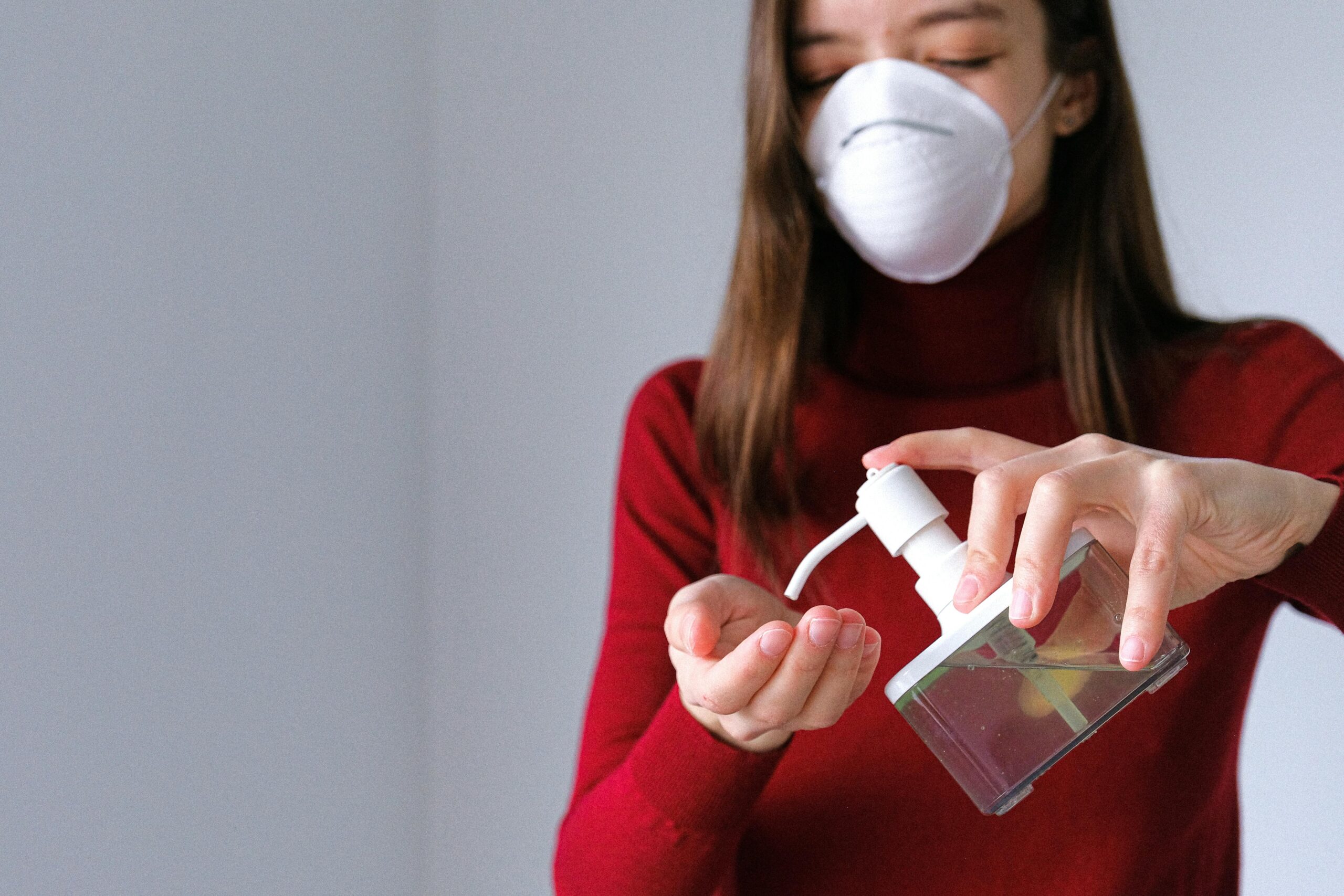10 Vital Health Tips Every Adult Should Practice Daily
Good health is the foundation of a happy and productive life. As adults, taking proactive steps to maintain and improve health is crucial to prevent illnesses and lead a fulfilling life. These ten expert-approved health tips cover essential aspects of nutrition, physical activity, sleep, mental balance, and preventive care — ensuring long-term vitality and improved quality of life.
1. Eat a Balanced and Nutritious Diet
Eating a healthy diet forms the backbone of good health. Adults should aim to consume a variety of foods including plenty of fruits, vegetables, whole grains, lean proteins, and healthy fats. Limiting the intake of salt, sugar, and harmful fats is equally important to avoid chronic diseases like heart disease, diabetes, and obesity.
Fiber-rich foods such as oats, beans, lentils, and fruits improve digestion and promote gut health. The presence of antioxidants and phytonutrients in colorful fruits and vegetables strengthens the immune system and fights oxidative stress. For cooking, prefer steaming, baking, or grilling — these methods help retain nutrients while avoiding excess fat.
Include omega-3 fatty acids from fish, walnuts, and flaxseeds to support heart and brain health. Also, avoid skipping breakfast, as a balanced morning meal jumpstarts metabolism and improves energy levels throughout the day. Small dietary decisions, when made consistently, lead to long-term benefits.
2. Stay Physically Active
Maintaining regular physical activity is one of the most effective ways to stay healthy across all ages. Adults should aim for at least 150 minutes of moderate-intensity exercise per week, such as brisk walking, cycling, or swimming. For additional benefits, increase activity levels to 300 minutes weekly or add muscle-strengthening sessions twice a week.
Exercise helps control weight, strengthens the heart, boosts lung capacity, and enhances mental health. It also improves bone density, flexibility, and balance — factors that prevent age-related falls and injuries. Activities like yoga, pilates, or dancing not only strengthen the body but also calm the mind. Remember, movement should be enjoyable to make it sustainable. Take short walks after meals, stretch during work breaks, and try active hobbies like gardening or playing a sport.
3. Drink Plenty of Water
Hydration is essential for maintaining normal body functions, including nutrient absorption, temperature regulation, and waste elimination. Adults should drink 6 to 8 glasses of water daily, with adjustments for climate and activity level.
Proper hydration boosts energy, prevents headaches, promotes healthy skin, and aids digestion. Water should always be the beverage of choice — avoid sugary sodas and excessive caffeine or alcohol intake. Including infused water with lemon, cucumber, or mint adds flavor while providing extra antioxidants naturally.
Monitor hydration by checking urine color — pale yellow indicates sufficient water levels, while darker shades suggest dehydration. Carrying a reusable water bottle can remind you to sip throughout the day.
4. Get Adequate Sleep
Sleep is the body’s natural recovery period, crucial for repairing tissues and consolidating memories. Adults need 7 to 9 hours of quality sleep nightly for optimal performance and mental well-being. Lack of proper rest leads to increased risks of obesity, diabetes, cardiovascular disease, and weakened immunity.
To improve sleep quality, create a relaxing bedtime routine — avoid screens, reduce caffeine intake in the evening, and keep your bedroom dark and cool. Following a regular sleep schedule trains your body’s internal clock. Prioritizing rest is not a luxury but a necessity for productivity and emotional stability.
5. Manage Stress Effectively
Chronic stress negatively affects nearly every system in the body, including digestion, immunity, and heart health. Adults facing work, financial, or social pressures often overlook stress management, leading to burnout and lifestyle-related disorders.
Incorporating mindfulness techniques such as meditation, yoga, or deep breathing helps calm the mind and regulate emotions. Listening to music, pursuing hobbies, or spending time with loved ones helps reduce stress hormones and improve mood. Regular physical activity and journaling can also be therapeutic. Remember, mental health is equally important as physical health — take short mental breaks during the day, and don’t hesitate to seek professional support if needed.
6. Avoid Tobacco and Limit Alcohol
Smoking remains one of the leading preventable causes of disease and early death. It damages the lungs, heart, and blood vessels, raising the risk of cancers and chronic respiratory diseases. Quitting smoking leads to immediate health improvements — within weeks, circulation and breathing begin to improve, and long-term disease risks drop significantly.
Excess alcohol also harms organs, especially the liver, and increases cancer risk. Moderate your intake: no more than one drink per day for women and two for men. For those with existing health conditions, abstaining completely is recommended. Choosing alcohol-free social alternatives, like mocktails or herbal drinks, helps sustain this lifestyle change comfortably.
7. Maintain a Healthy Weight
Managing body weight is key to reducing the risk of chronic diseases such as type 2 diabetes, stroke, arthritis, and some cancers. A healthy weight depends on balanced nutrition, regular exercise, and stable metabolic function — not extreme dieting.
Set realistic goals and monitor weight monthly rather than daily. Focus on body composition rather than the number on the scale. Since each person’s ideal weight varies with body type, age, and activity level, consult a healthcare professional or dietitian for personalized guidance. Maintaining a healthy waist circumference is a reliable indicator of reduced health risks.
8. Practice Good Hygiene
Personal hygiene is the simplest yet most powerful defense against infections. Regular handwashing with soap prevents viral and bacterial transmissions, especially before meals and after public exposure. Oral hygiene — brushing twice and flossing once daily — helps maintain overall health since gum infections are linked with heart conditions.
Maintain cleanliness in your surroundings too. Disinfect frequently touched surfaces and practice proper food hygiene to prevent contamination. Good hygiene also boosts confidence and contributes to a positive self-image.
9. Protect Skin from Sun Damage
Skin is the body’s largest organ and acts as a protective barrier. Prolonged sun exposure can cause premature aging, sunburns, and increase the risk of skin cancer. Always apply a broad-spectrum sunscreen of at least SPF 30 before stepping outdoors and reapply every two hours if exposed continuously.
Wear protective gear like hats, sunglasses, and long-sleeved clothes to minimize UV exposure, especially between 10 AM and 4 PM. Avoid tanning beds and harsh chemical treatments. Periodically check for any unusual moles or skin changes and consult a dermatologist for early detection of issues.
10. Get Regular Health Check-Ups
Preventive health check-ups detect potential issues early when treatment is more manageable. Key tests include blood pressure, cholesterol, blood sugar, and thyroid levels. Women should also keep up with pap smears and mammograms, while men should consider prostate screenings as recommended by age and health history.
Vaccinations and boosters protect adults from preventable diseases. Scheduling regular eye, dental, and hearing exams ensures holistic health maintenance. Open communication with healthcare providers helps tailor check-ups based on lifestyle, genetics, and age.
Bonus Tip: Build Healthy Social Relationships
Human connection profoundly influences emotional and physical health. Nurturing friendships, family ties, or community relationships provides emotional support, reduces loneliness, and promotes a sense of belonging. Engaging in group activities, volunteering, or joining wellness clubs fosters positive mental health and longevity.
Conclusion
These 10 vital health tips — from balanced nutrition and physical activity to stress management and preventive check-ups — provide an all-round strategy to protect and enhance your well-being. Good health doesn’t rely on occasional changes but on consistent daily practices. By integrating these habits into your lifestyle, you can enjoy better physical stamina, mental clarity, and emotional peace — all keys to a longer, happier life.
Start today with small, intentional steps. Eat smarter, move more, sleep well, and care for both body and mind. Good health is an investment that rewards you every single day.
Frequently Asked Questions (FAQs)
1. Why is a balanced diet so important for adults?
A balanced diet supplies your body with essential nutrients like carbohydrates, proteins, healthy fats, vitamins, and minerals that support energy, immunity, and organ function. It also helps prevent lifestyle diseases such as obesity, heart disease, and type 2 diabetes.
2. How many servings of fruits and vegetables should I eat daily?
Most health experts recommend aiming for at least 5 servings of fruits and vegetables per day in a variety of colors. This ensures a good intake of fiber, vitamins, antioxidants, and phytonutrients that protect against many chronic diseases.
3. What is the minimum amount of exercise an adult needs?
Adults are generally advised to get at least 150 minutes of moderate-intensity aerobic activity per week, such as brisk walking or cycling. Alternatively, 75 minutes of vigorous exercise, combined with muscle-strengthening activities on 2 or more days a week, also supports overall health and fitness.
4. Can I stay healthy with only walking as my main exercise?
Yes, brisk walking is an excellent low-impact aerobic exercise that improves heart health, supports weight management, and boosts mood. For best results, combine walking with light strength training or flexibility exercises a few times a week.
5. How much water should an adult drink every day?
On average, adults should drink about 6 to 8 glasses of water per day, but needs vary based on climate, activity level, and health conditions. You may need more water if you live in a hot region, exercise regularly, or sweat heavily.
6. What are signs that I am not drinking enough water?
Common signs of dehydration include dark yellow urine, dry mouth, fatigue, headaches, and dizziness. If you notice these symptoms frequently, you may need to increase your daily fluid intake and monitor your hydration more closely.
7. How many hours of sleep do adults really need?
Most adults require 7 to 9 hours of quality sleep each night for proper physical recovery and mental functioning. Consistently sleeping less than this can raise the risk of weight gain, weakened immunity, mood disorders, and chronic diseases.
8. What can I do to improve my sleep quality?
You can improve sleep quality by going to bed and waking up at the same time daily, limiting screen use before bedtime, and avoiding heavy meals, caffeine, and nicotine in the late evening. Keeping your bedroom dark, quiet, and cool also supports deeper, more restful sleep.
9. How does stress affect my physical health?
Chronic stress increases levels of hormones like cortisol, which can raise blood pressure, disturb digestion, weaken immunity, and contribute to anxiety or depression. Over time, unmanaged stress can increase the risk of heart disease, obesity, and other serious health issues.
10. What are simple ways to manage daily stress?
Simple stress-relief methods include deep breathing exercises, meditation, walking, yoga, listening to music, and spending time with supportive people. Setting boundaries at work, taking short breaks, and practicing gratitude journaling can also improve emotional balance.
11. Is it ever too late to quit smoking?
No, it is never too late to quit smoking. Stopping tobacco use at any age improves circulation, lung function, and energy levels, and it significantly reduces the risk of heart disease, stroke, and various cancers over time.
12. How much alcohol is considered “moderate” for adults?
For most healthy adults, moderate drinking is usually defined as up to 1 drink per day for women and up to 2 drinks per day for men. People with certain medical conditions, those on specific medications, or pregnant women should avoid alcohol completely.
13. How do I know if my weight is in a healthy range?
Body mass index (BMI), waist circumference, and body composition are common indicators of healthy weight. While BMI gives a rough estimate, it is best interpreted with help from a healthcare professional who can also consider your age, muscle mass, and medical history.
14. How often should adults have health check-ups?
Many adults benefit from a general health check-up at least once a year, especially to monitor blood pressure, blood sugar, cholesterol, and weight. The exact frequency of screenings depends on age, sex, family history, and existing health conditions, so it is wise to discuss a personalized schedule with your doctor.
15. Which preventive screenings are most important for adults?
Key preventive screenings include blood pressure, cholesterol levels, blood sugar tests, and certain cancer screenings such as mammograms, Pap tests, colonoscopy, and prostate evaluations depending on age and risk. Regular dental, eye, and skin examinations are also important for comprehensive health protection.
16. Can a healthy lifestyle really prevent chronic diseases?
Yes, adopting healthy habits like eating a nutritious diet, staying physically active, not smoking, limiting alcohol, managing stress, and maintaining a healthy weight can significantly reduce the risk of chronic diseases. While not all illnesses are preventable, a healthy lifestyle greatly improves your odds of living a longer and more active life.
17. How can I stay motivated to follow these health tips daily?
Set small, realistic goals and track your progress through a journal or mobile app to stay motivated. Celebrating small wins, finding an accountability partner, and focusing on how good you feel rather than just numbers on a scale helps you maintain healthy habits for the long term.














